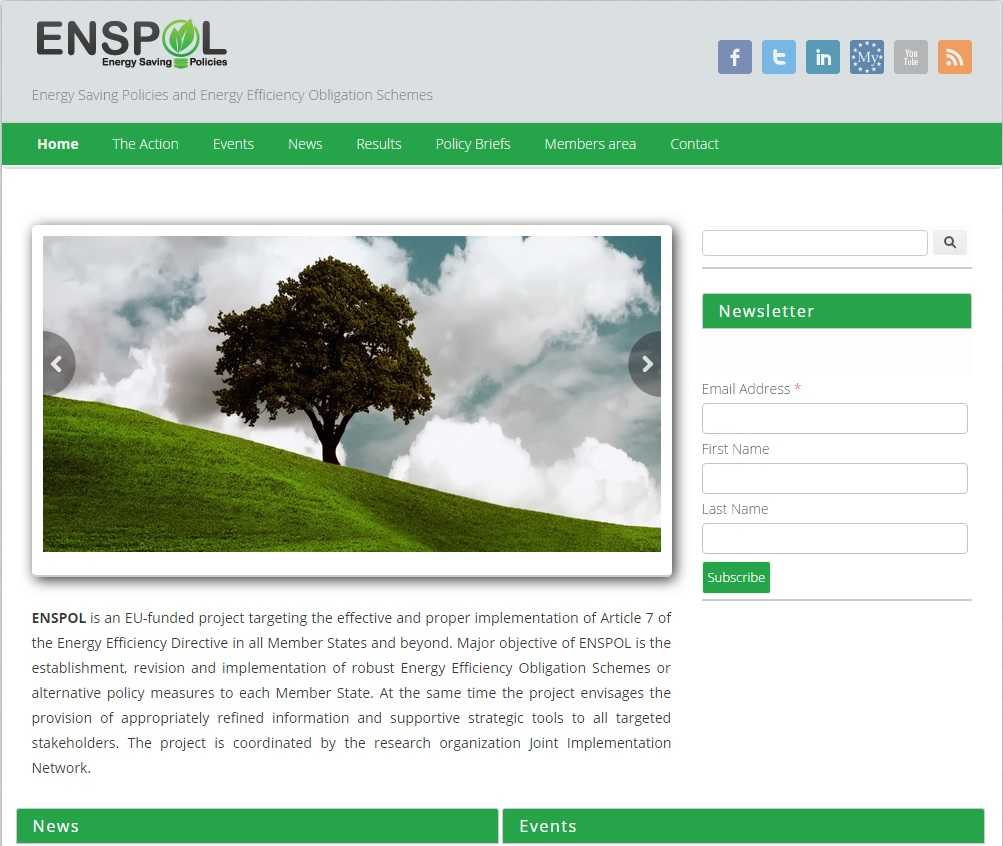Energy Efficiency
According to the International Energy Agency (IEA), energy efficiency is a way of managing and restraining the growth in energy consumption. Something is more energy efficient if it delivers more services for the same energy input, or the same services for less energy input.
JIN's activities on energy efficiency

JIN coordinates the project ENSPOL, which is funded by the European Commission under the programme Intelligent Energy Europe (IEE). An important focus of ENSPOL is how EU Member States transpose Article 7 of the EU’s Energy Efficiency Directive (EED) in their national legislation. This article and its technical requirements have generated a series of debates and arguments among EU Member States. ENSPOL (Energy Saving Policies and Energy Efficiency Obligation Schemes in Europe) sheds some light in this process through a series of workshops, trainings and observatories, both at the level of the EU and the Member States.
Thus far, the Energy Efficiency Obligation (EEO) schemes dominate in the intentions of policies of most Member States in order to comply with the Article 7. To this end, policy experience of EEOs in the EU is clearly the most directly applicable. However, the use of EEOs is not unique to the EU, as there is significant (and, in some cases much longer) experience of this type of policy instrument worldwide. EEOs require energy companies to achieve yearly energy savings of 1.5% of annual sales to final consumers. In order to reach this target, companies have to carry out measures which help final consumers improve energy efficiency. This may include improving the heating system in consumers' homes, installing double glazed windows, or better insulating roofs to reduce energy consumption.
In 2016, two new project on energy efficiency have started. JIN coordinates the PUBLENEF project, aiming to assist European Union Member States in implementing effective and efficient sustainable energy policies (with the focus on energy efficiency) and empower them to make use of the best practices and policy processes implemented in other Member States at the national, regional and/or local level. Secondly, JIN is a partner in the EU-MERCI project, aiming to support the growth of energy efficiency in industry processes. It will develop methods and tools for assisting EU industry in the effective implementation of energy efficiency improvements and in the monitoring of the energy savings, in application of the 2012/27/EU Directive.
